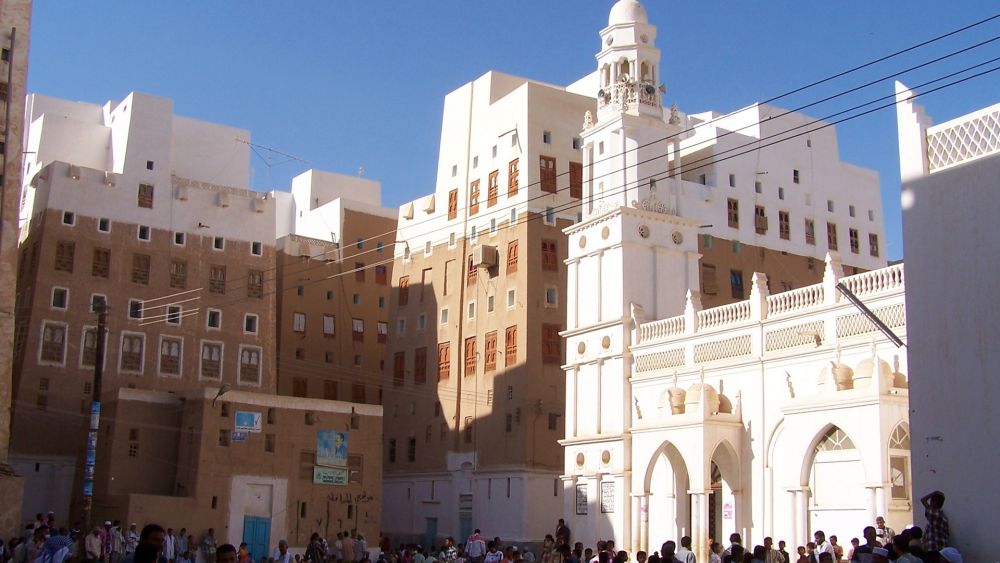

The Shibam Mosque, located in the ancient city of Shibam in Yemen, is one of the city's most notable architectural and historical landmarks. With its origins dating back several centuries, the mosque stands as a testament to Yemen's long and rich history as well as its religious and cultural significance.
The city of Shibam itself, often referred to as "the Manhattan of the desert", is famous for its towering mudbrick-made high-rise buildings, some rising over 30 meters (98 feet) high. It is believed that the Shibam Mosque was established during the early spread of Islam in the region, with the city's history of settlement stretching as far back as the 3rd century AD. The exact age of the mosque is difficult to determine, but it is clear that it has been a central place of worship for the local population for many centuries, reflecting the deep-rooted Islamic traditions of the area.
Tourism in Shibam has traditionally been fueled by the city's unique architecture and the Shibam Mosque, which has attracted scholars, historians, and travelers interested in ancient civilizations and Islamic culture. Unfortunately, political instability and regional conflicts have significantly impacted the influx of visitors to Yemen and its historic sites in recent years.
In times of peace, Shibam and its iconic mosque would typically see a modest but steady stream of tourists, mostly consisting of cultural and heritage enthusiasts. The implementation of UNESCO World Heritage status for the Old City of Shibam has highlighted the importance of preserving this area for its outstanding universal value.
Despite the challenging circumstances, virtual tourism has emerged as a trend, offering digital tours and experiences for those who cannot visit physically. Conservationists and global heritage organizations have been working to digitally preserve sites like the Shibam Mosque, providing an alternative means of engagement with Yemen's rich cultural heritage.
Before the recent conflict, sustainable tourism development was a goal for the region, aiming to protect and conserve the cultural treasures like Shibam Mosque while also supporting the local economy. Efforts were made to balance the need for economic development with the preservation of the historical character of the city and its mosque.
In conclusion, the Shibam Mosque remains an integral part of Yemen's cultural fabric, with tourism historically playing a role in its appreciation and conservation. The preservation of such heritage sites remains crucial not only for Yemen but also for the global community, to safeguard our shared human story.